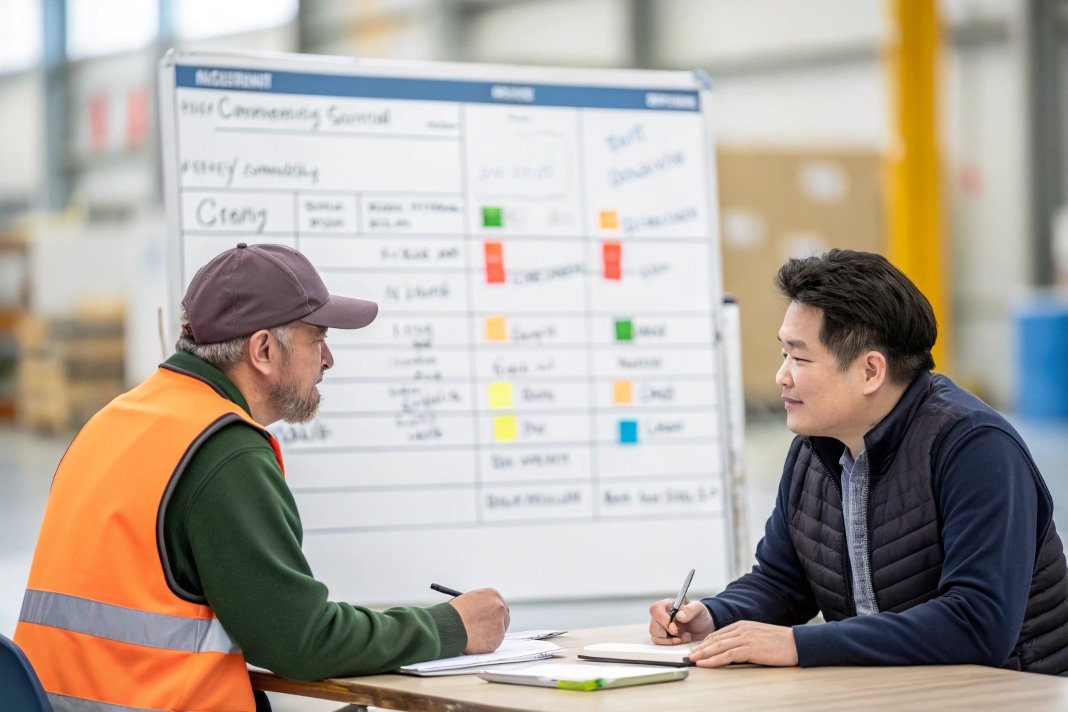
Building a strong supplier relationship is something I’ve learned to prioritize over the years. In the early days of my business, I didn’t fully realize just how much of an impact effective supplier relationships could have on my success. I thought it was all about cost and speed. But as I worked with more suppliers, I realized that the key to consistent success was collaboration1, trust, and clear communication2. It’s not just about getting parts delivered on time; it’s about building a partnership that benefits both sides.
An effective supplier relationship is built on trust, collaboration, and open communication. By using key strategies to strengthen these connections, you can reduce risks, improve reliability, and ensure better outcomes for your business.
In this article, we’ll discuss the best strategies for building strong supplier relationship3s, how regular communication plays a vital role in these relationships, and why providing feedback is essential for continuous improvement and partnership strength.
What Are the Key Strategies for Building Strong Supplier Relationships?

Strong supplier relationships don’t just happen—they are built through intentional efforts to foster trust, clear expectations, and mutual respect. By focusing on these key strategies, you can develop long-lasting and fruitful partnerships.
Key Strategies for Strong Supplier Relationships
| Strategy | How It Builds Strong Relationships |
|---|---|
| Clear Expectations and Goals | Setting specific, measurable, and mutually agreed-upon goals from the start ensures alignment and avoids misunderstandings. |
| Open and Transparent Communication | Regular, honest communication allows both sides to address issues promptly and maintain alignment on priorities. |
| Fairness and Mutual Respect | Treating your suppliers as partners and acknowledging their expertise helps build a foundation of trust. |
| Long-Term Focus | Moving beyond transactional interactions and looking toward long-term success helps stabilize relationships and drive growth. |
| Collaboration in Problem-Solving | When challenges arise, collaborating on solutions strengthens the bond between you and your suppliers, fostering a cooperative spirit. |
Trust is the Foundation
From my own experience, one of the most important elements in supplier relationships is trust. When suppliers know they can rely on you for clear communication and fair dealings, they are more likely to go the extra mile when problems arise. Trust creates an environment where everyone is invested in the relationship, not just the transaction.
How Can Regular Communication Improve Your Supplier Relationships?

Regular and transparent communication is essential for improving supplier relationships. By staying in constant contact, you can resolve issues quickly, ensure alignment on goals, and maintain a steady flow of information.
Benefits of Regular Communication
| Communication Method | How It Strengthens the Relationship |
|---|---|
| Frequent Updates | Regularly updating suppliers on project progress and changes ensures they can adjust to your needs and priorities. |
| Active Listening | Listening to your supplier’s concerns and ideas shows that you value their input and fosters a sense of mutual respect. |
| Quick Response to Issues | Addressing problems early through consistent communication minimizes their impact on production and delivery timelines. |
| Building Trust | Keeping communication open and consistent builds trust, preventing misunderstandings and potential conflicts. |
| Ensuring Alignment | Regular discussions about performance, timelines, and challenges keep both parties aligned with mutual objectives. |
Communication Is Key
In my experience, the most successful supplier relationships are those where communication is frequent and candid. I found that even just a quick weekly check-in call can help avoid problems before they escalate. It’s easy to overlook communication, but it has a huge impact on keeping things running smoothly.
Why Should You Provide Feedback to Your Suppliers to Strengthen the Partnership?

Providing constructive feedback is crucial for strengthening supplier relationships. It not only helps suppliers improve their processes but also fosters a sense of partnership where both sides work together for continuous improvement.
The Importance of Providing Feedback
| Type of Feedback | Why It Strengthens the Relationship |
|---|---|
| Positive Feedback | Acknowledging a job well done motivates suppliers to continue delivering high-quality products and services. |
| Constructive Feedback | Offering feedback on areas of improvement helps suppliers refine their processes and better align with your needs. |
| Collaborative Problem-Solving | Providing feedback in a solution-oriented manner encourages collaboration and joint efforts to resolve issues. |
| Timely and Specific | Giving feedback quickly and with clear examples ensures that suppliers know exactly what’s working and what isn’t. |
| Consistency | Regular feedback keeps the conversation open and reinforces expectations for quality, timeliness, and service. |
Feedback Drives Improvement
I’ve seen firsthand how feedback can improve the quality of parts and the overall service. Suppliers who receive regular feedback, especially constructive input, tend to refine their processes and improve over time. Providing feedback isn’t about criticism—it’s about setting the stage for growth and making sure both sides are aligned on what’s needed.
Conclusion
Building a more effective supplier relationship requires intentional effort and clear communication. By focusing on strategies such as setting clear expectations, maintaining regular communication, and providing constructive feedback, you can create a relationship that benefits both you and your suppliers. A strong partnership is not just about fulfilling orders—it’s about creating mutual trust and collaboration that leads to long-term success.
Learn about the importance of collaboration in building strong supplier partnerships and achieving mutual goals. ↩
Discover insights on how clear communication can transform your supplier interactions and lead to better outcomes. ↩
Explore this resource to learn effective practices that can enhance your supplier relationships and drive business success. ↩

